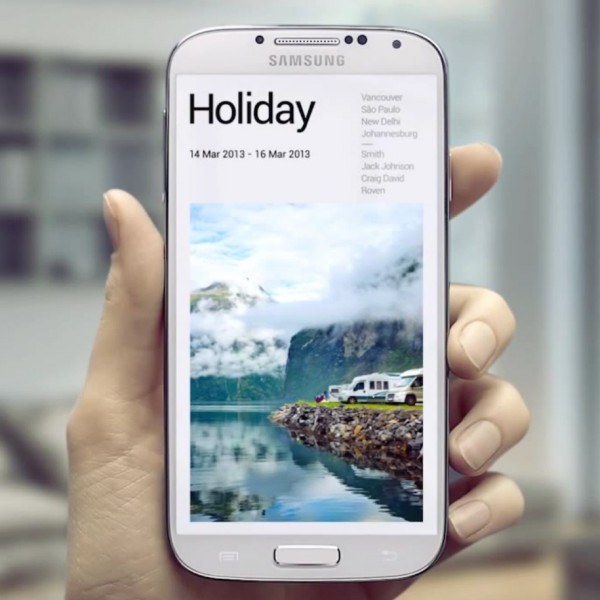
You likely will buy Samsung Galaxy S4
Last week I asked if you would buy Samsung's newest smartphone, which goes on sale later this month. With a large enough sample size -- 1,700 responses so far -- time is come to share the results. Seventy percent say they will buy Galaxy S4, although not all immediately. Just 20 percent answer flat-out "No".
I should qualify the headline: "You likely will buy Samsung Galaxy S4, if you're not American". Over here, more people are bugaboo about iPhone. Apple had 38.9 percent smartphone subscriber share in February compared to 21.3 percent for its South Korean rival, according to comScore. Elsewhere, Samsung rules, selling more general handsets and smartphones than any other manufacturer, according to Gartner. (Woe to damn provincial Americans!)
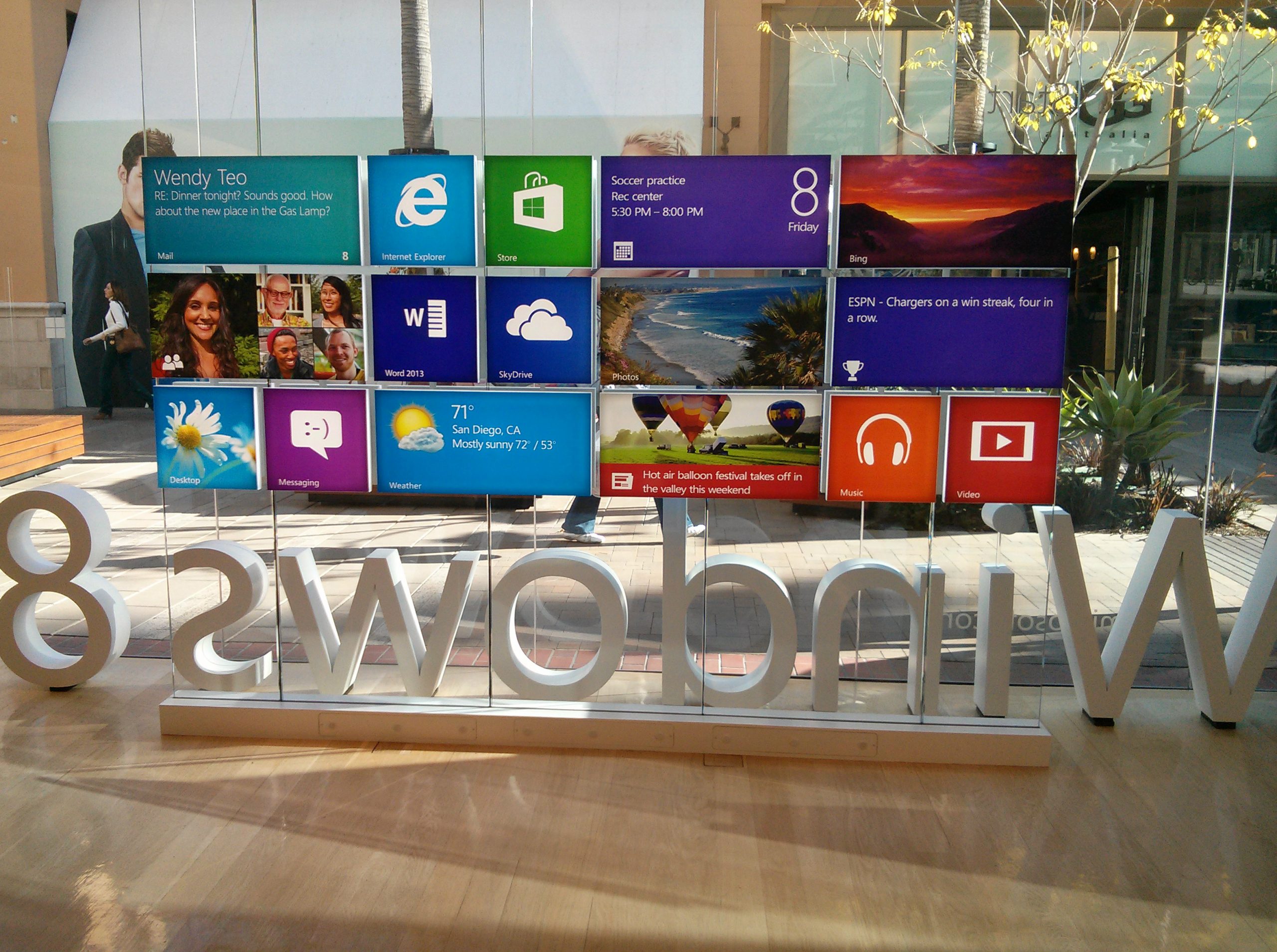
Don't blame Windows 8 for weak PC shipments
Well, well, perhaps Windows 8 isn't cause for all the PC market's woes, as IDC strongly stated yesterday. Gartner's first-quarter assessment is grim but no reaper. The analyst firm lays blame partly on consumers unwillingness to pay more for touchscreen models and asserts that the business market actually grows. Also, the firms released contradictory data, with Apple showing glaring and shocking differences.
Mikako Kitagawa, Gartner principal analyst, doesn't blame Windows 8: "Consumers are migrating content consumption from PCs to other connected devices, such as tablets and smartphones". The first factor pulling down PC shipments, which by Gartner estimates fell 11.2 percent globally during Q1, is tablet competition, then. Not Windows 8.

Set up two-factor authentication for your Google account on Windows Phone
Enabling two-factor authentication for a Google account is an effective security measure against unauthorized access. It adds an extra layer of protection by requiring users to enter an application-specific password or security code in order to gain access to various Google services. For this second part the company says users will need an Android, BlackBerry or iOS handset. But what about generating security codes on Windows Phone? Surely, there has to be a way.
And there is. Microsoft has released an app called Authenticator which allows Windows Phone users to generate security codes for two-factor authentication. And, because it "implements industry-standard security code generation", the app supports Microsoft as well as Google accounts. The only question is: How to set it up for the latter?

FU, Windows 8, PC shipment decline is worst EVER
In some alternate universe, Microsoft CEO Steve Ballmer slaps former Windows & Windows Live president Steven Sinofsky on the back for a job well done. The company's newest operating system is such a huge success that sagging PC shipments soared to record numbers. Our reality is something shockingly different. First-quarter declines are the worst since IDC started tabulating numbers in 1994 and surpass the worst estimates. You know things are really bad when even perennial gainer Apple sees a huge year-of-year fall off.
"At this point, unfortunately, it seems clear that the Windows 8 launch not only failed to provide a positive boost to the PC market, but appears to have slowed the market", Bob O'Donnell, IDC vice president, says. Holy Moley, Windows 8 slowed the market? You want to know why Ballmer booted Sinfosky out the door? O'Donnell offers chilling indictment.
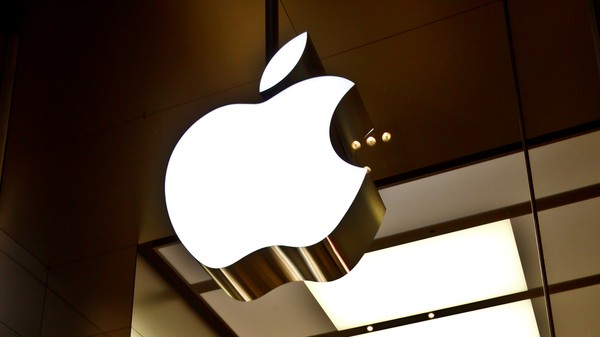
Six ways Apple could correct its enterprise blunders
Second in a series. Out of fairness, I follow up my long analysis "The enterprise will never embrace Apple" with some advice for the company. There's room in the enterprise if only Apple made more effect. None of these suggestions is outside the reach of CEO Tim Cook and the core leadership.
Perhaps Apple stays out of the enterprise game because the top brass knows that they have little expertise in the general directions that big business is heading. Their lack of desire (or capability) for true Active Directory integration, for example, is already public knowledge. When it comes to virtualization and the move to virtual desktops, Apple has no public strategy for allowing (or supporting) such an infrastructure on OS X devices, at least first party. To put it plainly, Apple's overall game plan for cozying up to the wants of enterprise is nearly nonexistent.

The enterprise will never embrace Apple
First in a series. If there is one company that clearly doesn't care about the corporate world, it is Apple. As iOS continues to forge flagship status as Apple's core offering, OS X gets second-class-citizen treatment in every possible way from the Cupertino, Calif.-based company. While the enterprise reluctantly builds out BYOD (bring your own device) initiatives to support usage of Apple devices at the workplace, this is a far stretch from openly embracing iOS or OS X as viable corporate platforms. Apple's presence in the boardroom is due to bottom-up organic acceptance as opposed to top-down purposeful planning.
By even conservative estimates, the enterprise IT market is massive, and growing steadily as the recession continues to recede. IDC recently pinned US corporate IT spending for 2013 at $474 billion, a 6 percent increase over the previous year. And globally, Gartner says that this figure is closer to $2.679 trillion, which represents a 2.5 percent year over year bump. Yet while Apple's sales in phones and tablets continues to stay consistently solid, the company's attitude towards enterprise hasn't changed one bit. For lack of a better description, top Apple executives just "don't care".

Microsoft continues its childish attacks on Google
Microsoft’s Scroogled campaign, in which the technology giant attacks Google for various perceived transgressions, has now turned its sights to Android, or more specifically the Google Play store.
Past Scroogled "attacks" (aka petty whining) have taken Google to task for using a pay-to-rank practice in Google Shopping, and reading emails in Gmail. The newest complaint is that Google shares your personal info with app makers.

Anyone can mine for bitcoins, even you
Although the decentralized digital currency first appeared in 2009, Bitcoin’s popularity has really taken off in recent weeks and the value of the coins has skyrocketed since January. The world’s largest Bitcoin exchange, Mt. Gox, currently has the currency listed as being worth $209 per coin.
Although you can purchase bitcoins, the real way to get your hands on some is to mine for them using a computer. The process involves solving a complex mathematical algorithm and it becomes harder to find blocks of bitcoins as time goes on because there’s only a set number of them in the system (the total number of bitcoins in existence will never exceed 21 million).

The Apple-Google duopoly so dominates app downloads there is little room for BlackBerry and Windows Phone
Mobile app store downloads from the four major stores -- Apple, BlackBerry, Google and Microsoft -- reached 13.4 billion in first quarter, generating $2.2 billion revenue, according to Canalys. Combined, revenue from new sales, in-app purchases and subscriptions grew 9 percent from fourth quarter, while number of downloads climbed by 11 percent.
There are a half-dozen measures that mark successful platforms, with money being the most important. Developers typically go where they earn more. That's preface to a fascinating juxtaposition partly explaining developer preference for iOS, even though more Android devices ship and cumulative sales (750 million to 500 million) are larger. Google Play accounted for 51 percent of downloads during Q1. But Apple's App Store generated 74 percent of the revenue. Ponder those numbers for a moment.

Yes! Microsoft really does need to rethink Windows 8
A fortnight ago I asked a simple question -- Is it time for Microsoft to make big changes to Windows 8? BetaNews readers weighed in on the topic and as I'd hoped it made for some fascinating and insightful reading.
Although plenty of people support Windows 8 and the Modern UI, a lot of readers feel that yes, Microsoft should seriously consider making changes to its divisive OS and accept that the "one size fits all" model isn’t working.
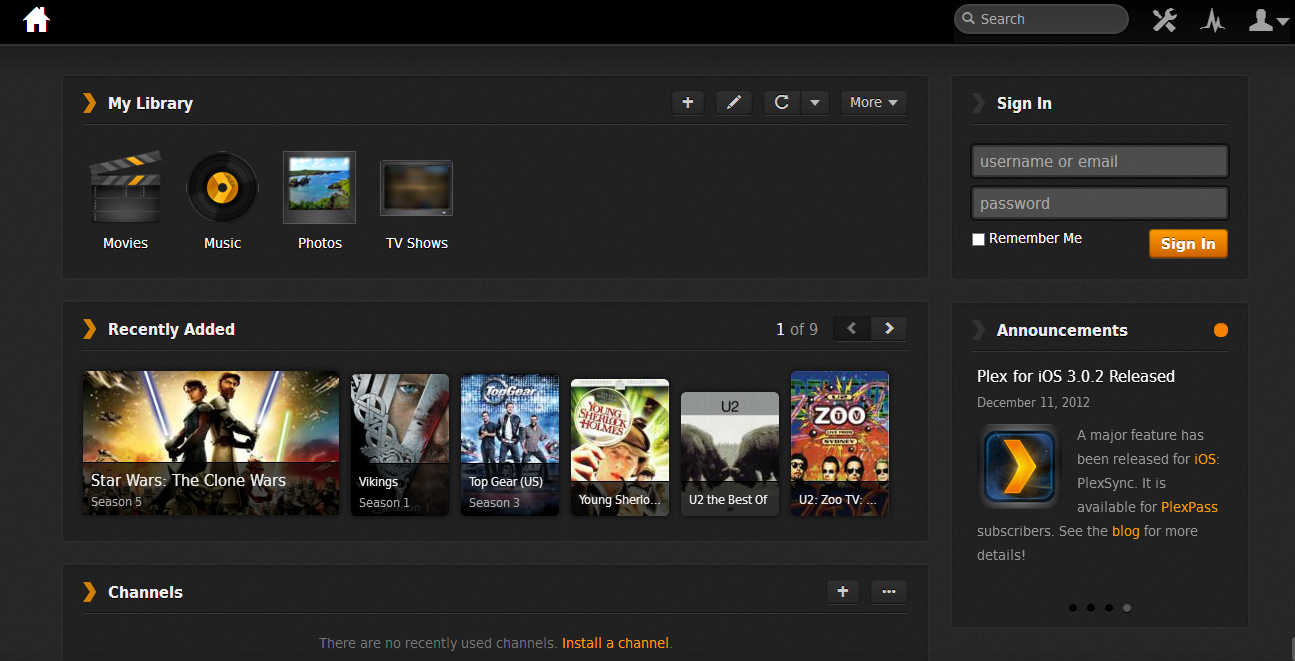
Make Google TV your living room entertainment hub
A month ago I made a major change in my living room, moving from HTPC running Windows 7 to Vizio Co-Star Google TV box. While the move saved a lot of shelf space, that was not the goal. My living room computer was old and slow, Windows Media Center no longer received real investment from Microsoft and developers had largely come to ignore the platform -- I only got Hulu on it via a hack.
Your first question may be how I can watch and record TV now, but that is not an issue. I never used WMC for that because I have DirecTV, which does not support input to WMC, although the company had once planned to do so before scrapping the idea. So, my HTPC was simply used for viewing our collection of ripped DVDs and digital photos, as well as listening to our large music collection through the living room home theater speakers and those on the outdoor patio. In other words, I never used WMC to its full potential.

Microsoft is nowhere near death's door
I am both a Microsoft fanboy and hater, depending on which day I read comments from our BetaNews faithful. The truth be known, I consider myself neither. I would say it this way: I am a fanboy of what works and is useful to me and hater of everything on the opposite side of that line. I use products from many manufacturers, but yes, Microsoft powers all of my home computers, save the server, which is FreeBSD. Google is also a big part of my daily life, as is Adobe and many lesser-knowns.
For two days now, debate rages across the Internet about an analyst's content that Microsoft could be irrelevant within four years. I could do nothing but laugh when I read this. This revelation derives from Gartner report that states: "While there will be some individuals who retain both a personal PC and a tablet, especially those who use either or both for work and play, most will be satisfied with the experience they get from a tablet as their main computing device". Some individuals? By that, do you mean those who have jobs?
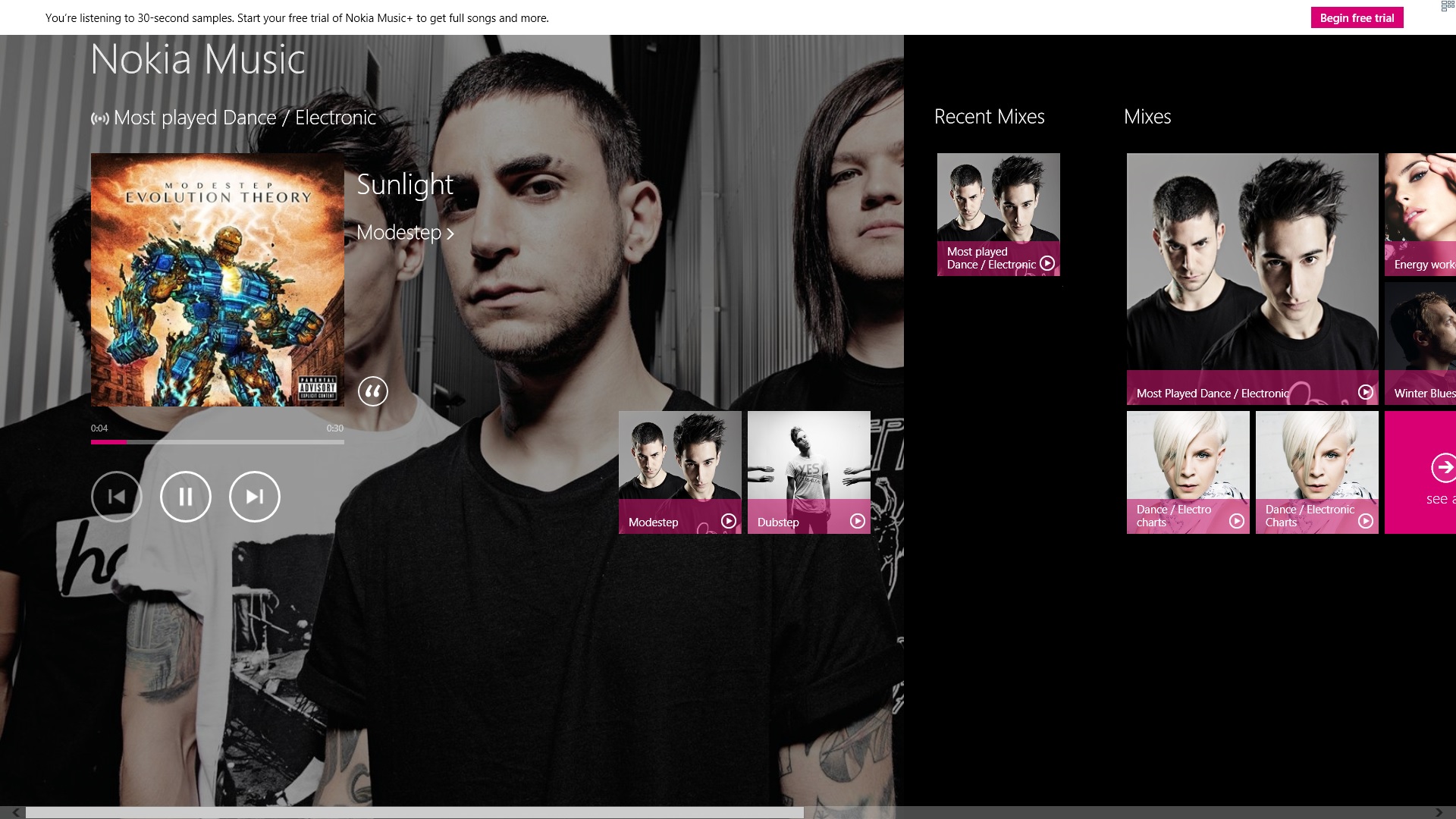
Best Windows 8 apps this week
Twenty-third in a series. The app count in Windows Store made a huge jump this week from 35,631 apps last week to 38,113 apps, an increase of 2,482 apps in total. The majority of new apps fall once again in the free category, with 2,044 new ones released this week for a total of 29,840. Paid apps increased by 439 this week to 8,273 in total. It appears as if Windows Store is picking up pace in regards to apps releases. The chart above highlights the progression in the last five weeks.
As far as updates go: the Skype app for Windows 8 bumped up to version 1.6, adding better options to block contacts in the communication app.

With its new video calling feature can Vonage Mobile really take on Skype? [Q&A]
On Tuesday, Vonage introduced free video calling into its mobile app for iPhone and Android, rounding out a suite which already offers features like free app-to-app calls, texts, photo and location sharing, as well as international calling.
I chatted to Nick Lazzaro, Vonage’s SVP Product Development, Information Technology and Managing Director Mobile Services, about the new addition, the company’s plans for the future, and what he thinks is next for the mobile industry.

What Facebook Home means to Apple and Google
How important is Facebook really? The answer may come soon after April 12, when the social network releases Home to Google Play. The Android add-on usurps the homescreen, putting interactions/people first and pushes apps to the background. This, ah, Home invasion means potential trouble for Apple and Google, but in vastly different ways. Apps anchor both their platforms, curated content and the digital lifestyles users adopt. Facebook bets that between the choice of both ways, human relationships matter more.
For either the fruit-logo company or search and information giant, another question is perhaps more significant: Is Facebook's mobile experience already good enough? Related: Do most users want to be enmeshed in a constant stream of social updates and interactions most of the time? Affirmative answer to either, or both, spells trouble for the platform developers but most worrisome for Apple, for which Facebook Home affronts and condemns the entire business model.
